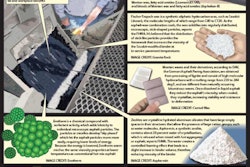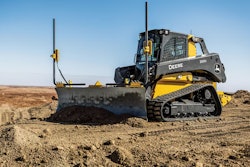Passing a Kidney Stone
 [email protected]
[email protected]“A tie,” football coach Vince Lombardi is said to have famously said, “is like kissing your sister.”
If we accept this wisdom from the Green Bay Packers legend, it follows that the recently enacted federal transportation bill is like shaking hands with your ex-spouse’s spouse … awkward, embarrassing and unfulfilling.
The ironically named MAP-21 (Moving Ahead for Progress in the 21st Century) is easily the worst, most inadequate infrastructure legislation passed in the last half century. It is a two-year bill when five or six years is a minimum practical need. It federally funds roads and bridges at less than $40 billion a year when $70 billion is widely recognized as a minimum need. It does not replenish the Highway Trust Fund, drawing instead on the general revenues of a dangerously overdrawn national treasury to cover the shortfalls.
MAP-21 is not progress at all. It is more like a kidney stone that has taken three excruciatingly painful years to pass, leaving the host organism with a luxurious pain-free moment before the cycle of agony starts again.
The best that can be said of MAP-21 is that it exceeds the sum of its parts. It is a better plan than either the House or the Senate bills that the conference committee had to work with. The House “bill” was a pathetic tribute to the inability of today’s Republican Party to solve a difficult problem; it wasn’t a bill so much as it was a willingness to enact yet another short-term extension of the long-ago expired SAFTEA-LU program of the last decade. SAFTEA-LU was inadequate for its own times and has been extended for more than three years via nine short-term extensions, and the best the GOP leadership could offer was another extension with even less money for roads and bridges.
Not that anyone should be gushing over the Democrat solution. Its sole virtue was a two-year time frame – grossly inadequate, but a half-notch higher on the courage scale than the House’s extension. The rest of the Senate package was a plan to supplement the Highway Trust Fund with questionable new revenues and general revenues.
The conference committee wisely adopted the House’s proposals for streamlining projects and giving more discretion to state DOTs in how they invest their federal dollars, and it adopted the Senate’s time frame and funding levels because the Senate approach was less bad than the House’s.
We can blame this mess on the members of the House and Senate. That is the popular thing to do these days and it’s fair to ridicule them for being so loudly and unapologetically ineffective.
But we should blame ourselves too. We the people elected them and they very accurately reflect what a divided, acrimonious citizenry we have become. We won’t get a fuel tax increase until it’s safe for a politician to explain to his or her constituency that a fuel tax increase is the only intelligent solution. On a broader scale, we can’t solve problems until we authorize our elected officials to acknowledge problems and make the compromises necessary to create solutions that reflect the consensus of the American people.












